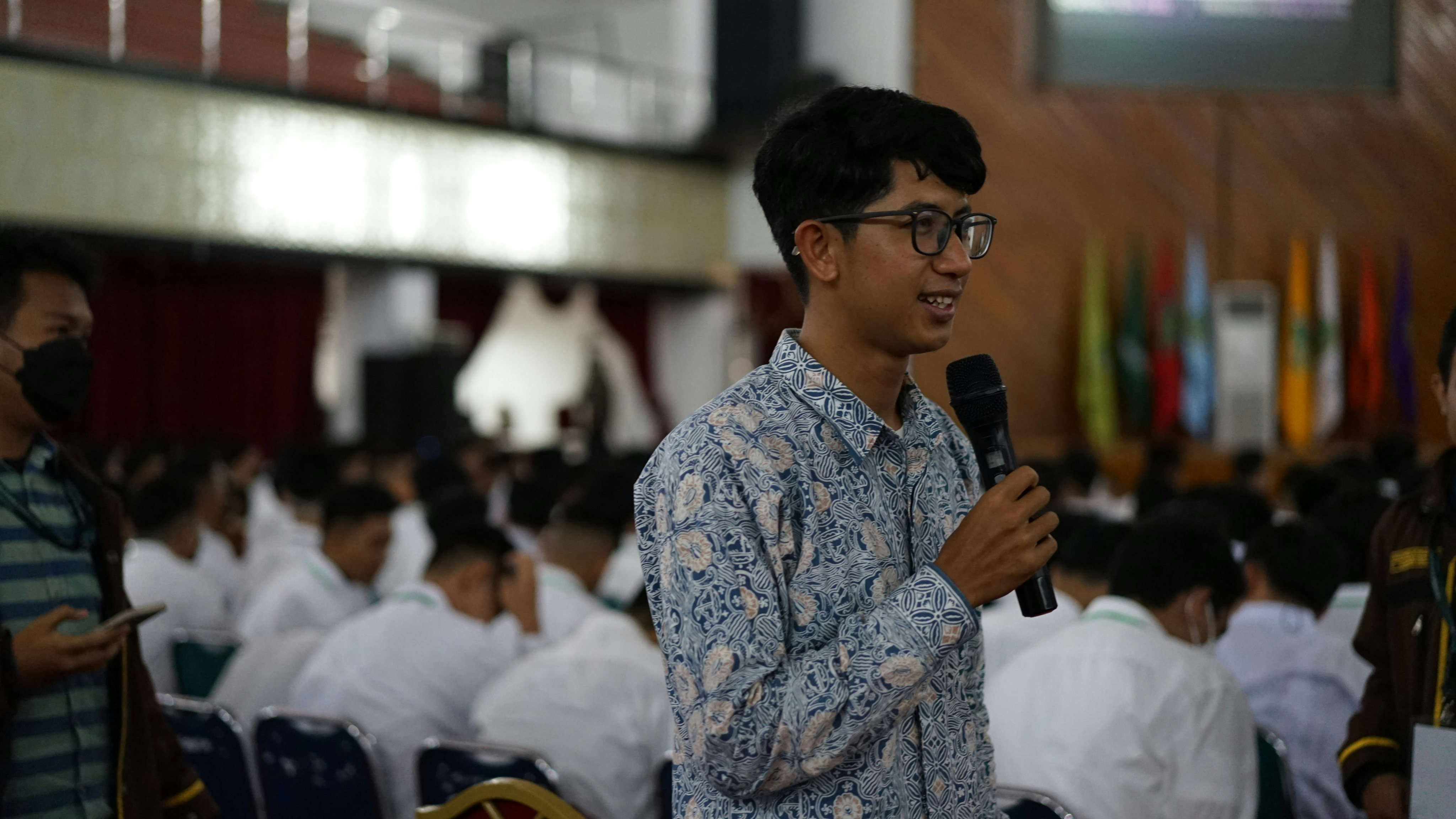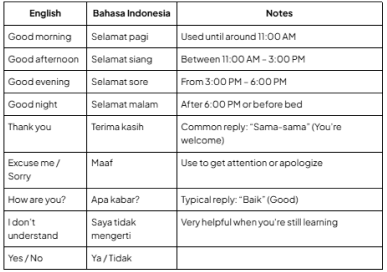
Adapting to life in Indonesia becomes much easier when you understand basic social norms and learn a few essential expressions in Bahasa Indonesia. Language is a window to culture—using simple greetings and polite expressions not only helps you communicate but also shows your respect and appreciation for the local way of life.
1. Common Daily Expressions
Bahasa Indonesia is the national language used in most social, academic, and administrative settings. Here are some basic expressions that are very useful in daily life:
Using these expressions in daily interactions shows good will and helps you blend in more smoothly.
2. Social Etiquette
Indonesians are known for being friendly, polite, and community-oriented. Understanding a few key behaviors can help you avoid unintentional offense:
3. Academic Etiquette
Politeness and respect are essential in academic environments in Indonesia. Here’s what you should keep in mind::
4. Cultural Sensitivity & Religious Diversity
Indonesia is home to multiple cultures and religions. Tolerance and mutual respect are deeply embedded in social interactions.
Universitas Islam Internasional Indonesia